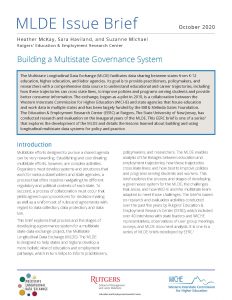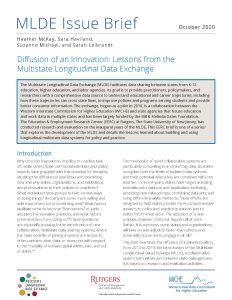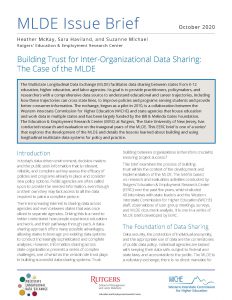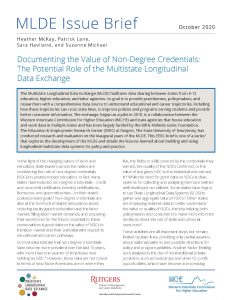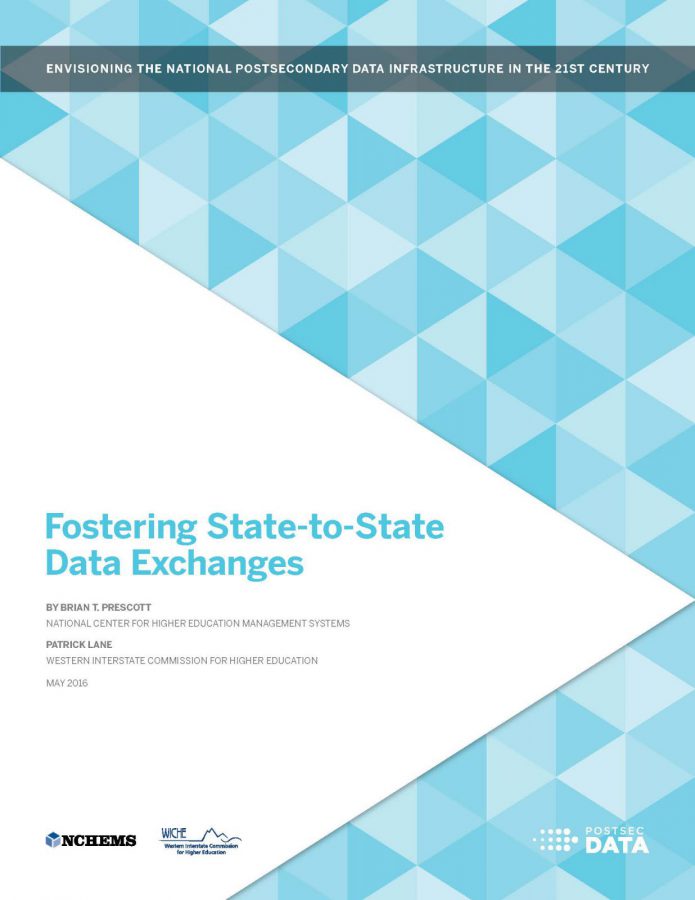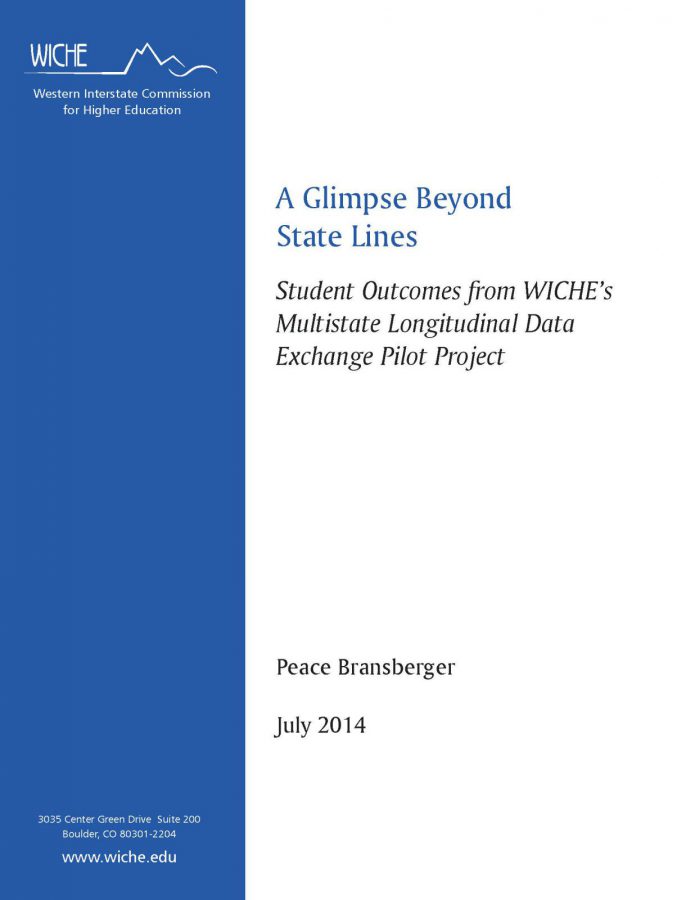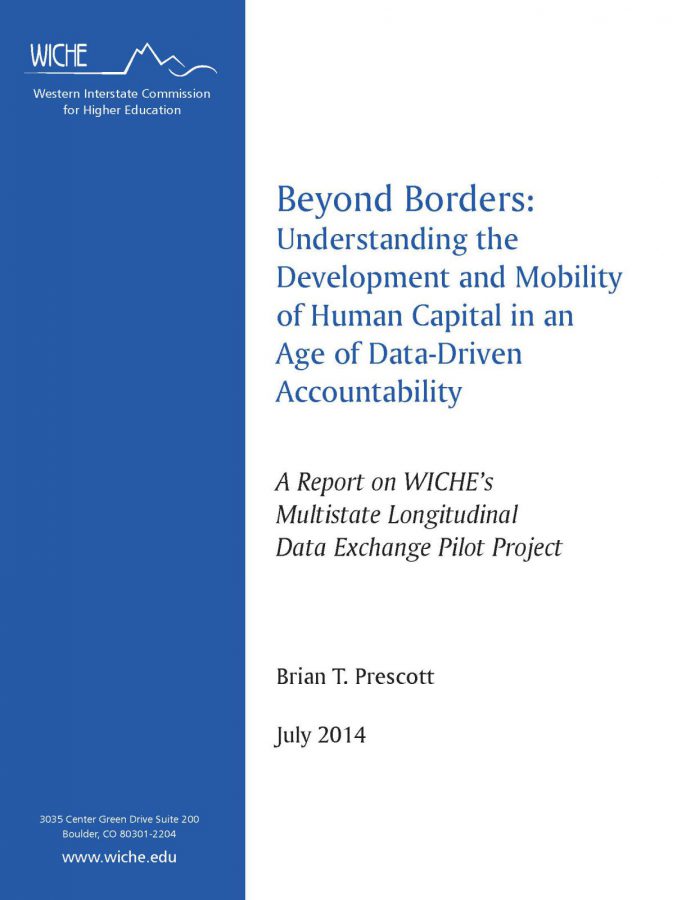Multistate Longitudinal Data Exchange
Why do states need access to data from other states?
Current Data Systems
States are investing heavily in education and workforce data systems, but such systems cannot reach their full potential because as individuals move across state lines the data systems lose them. This leads to uncertainty about educational and workforce outcomes.
Who Needs Access to Better Data?
- Students and their families need more accurate and complete information about education and training programs — and their employment outcomes — in order to make better informed decisions.
- State policymakers and legislators need better data to develop effective higher education and workforce training programs and to strategically plan for economic development.
- Institutions of higher education need better information on student migration to report more accurate outcomes of their graduates and to adapt programs to better serve students.
One possible solution:
The Multistate Longitudinal Data Exchange (MLDE) is one of several data sharing initiatives that can fill significant gaps in what is known about education and employment outcomes. In doing so, students and their families, policymakers, and institutions will better understand what works and what doesn’t in everything from high school preparation to college completion to workforce development.
The MLDE has been successfully piloted in six states (Hawai‘i, Idaho, Minnesota, North Dakota, Oregon, and Washington) and is designed to:
- Evaluate programs accurately. The MLDE will help states better evaluate policies, like state financial aid programs and dual and concurrent enrollment, by accounting for individuals who are currently lost by current data systems.
- Give students and families better consumer information. The MLDE will help states produce better information for students and families that can be used for life-changing decisions.
- Provide institutions of higher education with data that can be used for improvement. The MLDE will allow institutions to better understand student outcomes to improve how students are served.
- Produce information crucial to building a talented workforce. The MLDE will provide better information to policymakers, researchers, and others about the flow of educated individuals to and from states. This will ensure there exists a workforce that meets economic needs and supports broad and equitable growth in the state.
How does the MLDE work?
The Multistate Longitudinal Data Exchange—governed by its participating states—allows participating states to safely exchange educational and employment data across state lines to develop a fuller picture of how well their educational and employment systems are performing.
To help state officials understand how the exchange works, specific steps have been developed for their use when seeking to obtain information. It is is important to note that safeguards are in place to assure privacy of information.
For Example
Use the 4-Step diagram below to see how the exchange works. Let’s say, for example, that officials in the state of Washington wanted to know whether students who started college in their state are transferring—or graduating and then finding employment—in border states like Oregon and Idaho. Click through each step below to see how the officials in Washington would obtain the information they are seeking.
Washington officials who work with the MLDE would submit a request for educational and/or employment data to the Exchange for a targeted group of individuals to determine if they have left the state to pursue additional education or employment.
Because each state has already submitted lists of students to the Exchange, the Exchange has a directory that matches any individuals showing up in Washington to either or both of the other states. The Exchange would then request the educational and/or employment data on those matched individuals from Oregon and Idaho.
The Exchange shares the list of matched individuals and the data elements requested with Washington. To ensure privacy, the data being shared are encrypted at every step of the process so that personal information can’t be identified, and individual data
are never shared publicly.
Through this matching process, Washington can determine the number of individuals moving to neighboring states and for what reasons— educational or employment (or both)—and what implications these trends suggest for their state’s education and employment policies and practices.
Briefs and Resources
Building a Multistate Governance System
October 15, 2020
WICHE’s Multistate Longitudinal Data Exchange (MLDE) facilitates data sharing between states from K-12 education, higher education, and labor agencies. This brief explores the development of the MLDE and the various stages of building a multi-state governance system.
Learn MoreDownload PDFDiffusion of an Innovation: Lessons from the Multistate Longitudinal Data Exchange
October 15, 2020
WICHE’s Multistate Longitudinal Data Exchange (MLDE) facilitates data sharing between states from K-12 education, higher education, and labor agencies. This brief explores the question “why do some innovations in policy or practice take off, while others fizzle out?” through the lens of the MLDE. Social scientists and policy experts have grappled with this question for decades, studying the diffusion of new ideas and examining how and why states, organizations, and institutions adopt innovations to their policies or practices.
Learn MoreDownload PDFBuilding Trust for Inter-Organizational Data Sharing: The Case of the MLDE
October 15, 2020
WICHE’s Multistate Longitudinal Data Exchange (MLDE) facilitates data sharing between states from K-12 education, higher education, and labor agencies. This brief is one of a series written by EERC and examines the process of building trust within the context of the development and implementation of the MLDE.
Learn MoreDownload PDFDocumenting the Value of Non-Degree Credentials: The Potential Role of the Multistate Longitudinal Data Exchange
October 15, 2020
WICHE’s Multistate Longitudinal Data Exchange (MLDE) facilitates data sharing between states from K-12 education, higher education, and labor agencies. This brief explores how the MLDE can provide insight into the value of non-degree credentials.
Learn MoreDownload PDFOlder resources
For more information, please contact:
